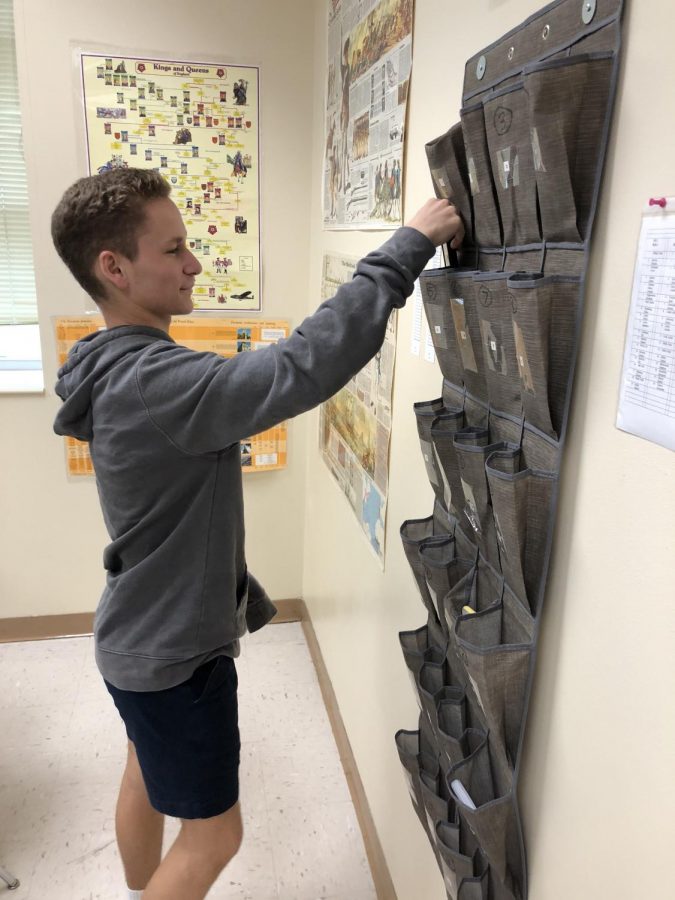New cellphone policy takes a positive spin
Sophomore Adam Alter places his phone in a container in a classroom. A phone holder is located in every classroom.
October 7, 2018
The administration recently implemented a brand new policy that mandates all students to place their cellphones in containers in the back of each classroom or in their locker in for the duration of the class period. Since the very beginning of the new school year, I have heard mixed opinions from peers about how the policy affects their temptations to use phones in class and the burden that the rule imposes on their daily lives.
But many of the views expressed by students lack a critical component that has resulted from this policy that I believe deserves our utmost attention: our ability to focus and contribute meaningfully in class.
After a month of school, I have found that despite dissent from some students, the new policy effectively addresses the issue of students’ decreased abilities to focus in class and follow along, which many schools around the country have been facing in recent years. According to a study by the Journal of the Association for Consumer Research, cellphones are a distraction to people even when they are in the room and not even being used. This new policy helps to curb our urges to use phones when they are present or in front of us during class.
Many students argue that the policy is inherently restrictive or unfair to those who do not use their phones in class. Others contend that it is too far-reaching or that the mandate unjustifiably punishes students who have demonstrated proper demeanor in their past usage of cellphones in classes. I would offer to those students that while this policy will undoubtedly take time to adjust to, it is in the best interests of the school and the student body to harbor a thriving learning environment where our distractions from cellphones are eliminated on a compromised, non-excessive basis.
The newly instituted rule is not overly limiting as some suggest because it permits students to possess and operate their phones during passing times, community time and lunch. These exceptions allow for a compromise and balanced approach since students have the chance to use their phone for parts of the day that will not disrupt their learning in classes.
Granted, most teenagers love using their cellphones no matter how appropriate the time to do so, but after all, we go to school to learn and intellectually progress, not to advance our social media, tech-based, internet-frenzied lives, despite our deep temptations to constantly do so. Additionally, we should be focusing more on our social interactions and our communal relationships.
While the new cellphone policy is neither perfect nor will it be easy for every single student to acclimate to, I believe that we must collectively laud and support its main goal which is to aid the JDS student body in devoting greater attention in class and encouraging student engagement. As with most new policies, it will take time to adjust to and uncover the hidden benefits of this rule, but it is key that we have an open mind and have an objective attitude regarding this policy.


















